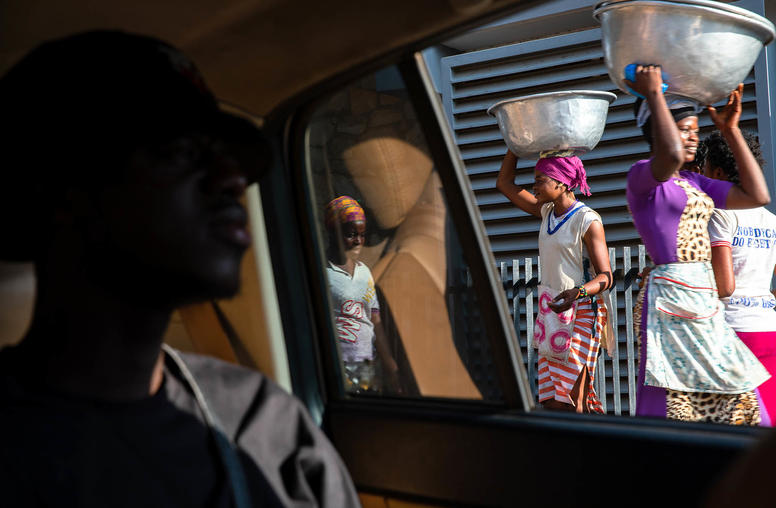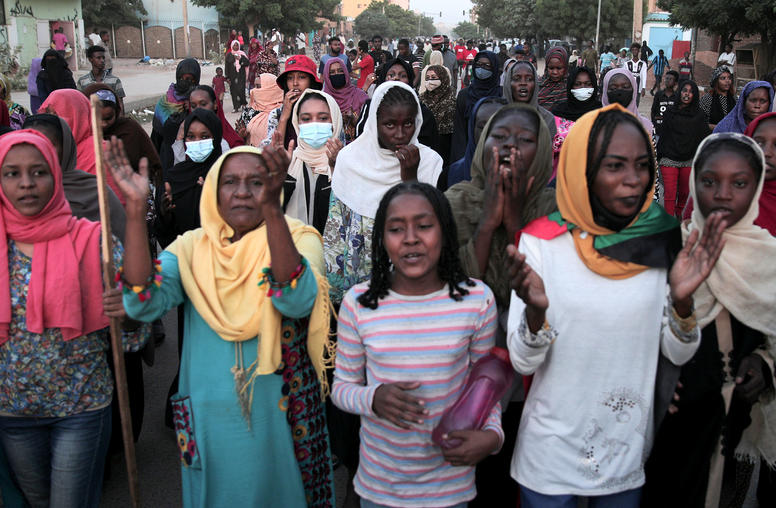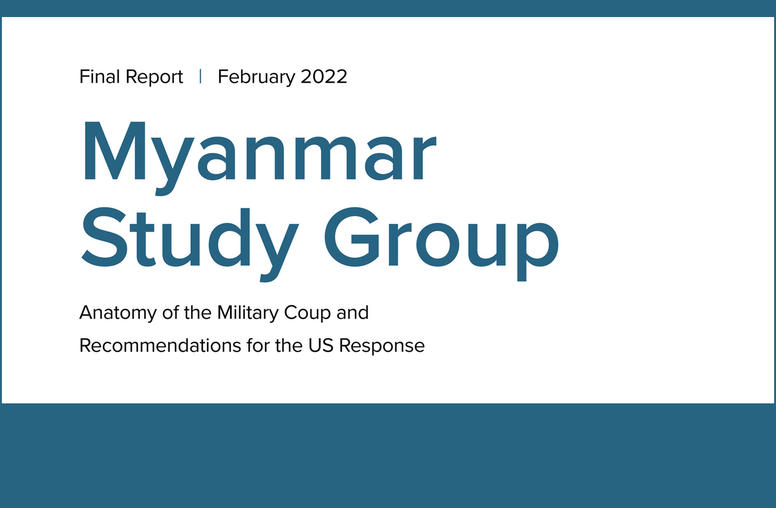Publications
Articles, publications, books, tools and multimedia features from the U.S. Institute of Peace provide the latest news, analysis, research findings, practitioner guides and reports, all related to the conflict zones and issues that are at the center of the Institute’s work to prevent and reduce violent conflict.

Mary Speck on Nicaragua’s Democratic Backsliding
With President Ortega now attacking the Catholic Church, USIP’s Mary Speck says Nicaragua’s democratic backsliding “has gone further than any other country” in Central America — noting the risk that regional leaders could follow Ortega’s lead after they “see what [he] has been able to get away with.”

Steve Hege on Colombia's Presidential Runoff Vote
With no establishment candidate left, Colombia's June 19 presidential runoff reflects voters' perception that "things [on] the ground are quite bleak" as the remaining candidates "promise significant degrees of change for Colombia and its relationship with the United States," says USIP’s Steve Hege.

Leo Siebert on the State of Tunisia’s Democracy
Last summer, “Tunisians had really reached a breaking point in their frustration with the previous government” and welcomed President Kais Saied’s dissolution of parliament, says USIP’s Leo Siebert. But that hope “is now shifting to apprehensiveness that things might not be going in the right direction.”

Coastal West Africa Senior Study Group Final Report
The countries of Coastal West Africa are currently facing significant challenges to peace and security as extremist violence spills over from the neighboring Sahel region. Attacks in 2022 in the northern parts of Benin, Côte d’Ivoire, and Togo illustrate the immediacy and gravity of the threat, and governments across the subregion are grappling with protecting fragile communities in the north, addressing porous borders that facilitate attacks from neighboring states, and building the capacity of security forces to address the threat.

Jason Tower on What the Ukraine War Means for Myanmar
As Russia withdraws resources from Myanmar to focus on Ukraine, China has filled the void by publicly supporting the junta. Meanwhile, the situation inside Myanmar continues to deteriorate, with “the military only able to hang on [to power] by using violence of tragic proportions,” says USIP’s Jason Tower.

Darfur after Bashir: Implications for Sudan’s Transition and for the Region
This report examines the role of Darfur in Sudan’s domestic politics and international relations since the overthrow of Omar al-Bashir in 2019. It traces how Darfur’s importance has shifted with the growing aspirations and power of Mohamed Hamdan Daglo – more commonly known as Hemetti – and the Rapid Support Forces that he governs. It concludes by examining where Western actors may have leverage to push for both peace in Darfur and civilian rule.

Keith Mines on the Situation in Venezuela
Despite a “near-total loss of faith in the political process” going into 2022, USIP’s Keith Mines says Venezuelans have not lost hope for a better future — and that underneath the polarization and dissatisfaction, you can “find a vision for the country that is shared by most Venezuelans.”

Billy Ford on Myanmar’s Resistance Movement
Despite the military junta’s imprisonment of ousted Myanmar leader Aung San Suu Kyi, USIP’s Billy Ford says there’s an opening for more inclusive narratives within the resistance movement — and if the movement can “unify around those [narratives] … it could come together and potentially defeat this regime.”

Myanmar Study Group: Final Report
In March 2021, the Myanmar Study Group was organized by the United States Institute of Peace (USIP) in response to the evolving conflict in Myanmar following the military coup of February 1, 2021. To support U.S. policy toward Myanmar, the Institute convened a study group of nine prominent experts on Myanmar and Asian affairs from April through September 2021. The study group held five discussions on topics of critical relevance to the crisis in Myanmar, supplemented by consultations with key stakeholders in the country and the region. Although convened by USIP, the views and recommendations contained in the report are solely those of the Myanmar Study Group, not USIP.

Sudan's Imperiled Transition: U.S. Policy in the Wake of the October 25th Coup
Joseph Tucker, senior expert for the Greater Horn of Africa, testified on February 1, 2022 at the Senate Foreign Relations Committee's hearing on "Sudan's Imperiled Transition: U.S. Policy in the Wake of the October 25th Coup." His expert testimony as prepared is presented here.